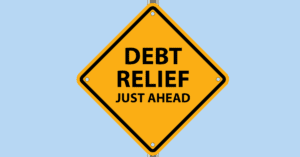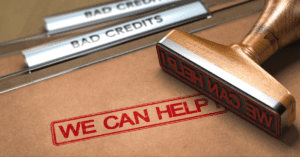Introduction:
Are you searching for ways to alleviate financial stress and seeking debt relief options? In today’s challenging economy you’re not alone. As a licensed insolvency trustee, I’ve seen firsthand the impact of rising debt and living costs on everyday Canadians. In this article, we’ll explore practical strategies for managing debt, from understanding the current financial landscape to finding the path to financial recovery. Let’s embark on a journey towards financial stability together.
Understanding the Current Financial Landscape in Canada
The Decline in TFSA Usage and Its Implications
The recent dip in Tax-Free Savings Account (TFSA) usage signals a shift in financial priorities. With more Canadians focusing on debt repayment over savings, it’s clear that managing debt has become a top concern.
The Burden of Historically High Household Debt
Household debt in Canada has reached unprecedented levels. This burden is not just a number; it’s a reality that affects daily lives, influencing decisions from grocery shopping to long-term financial planning.
The Impact of Rising Borrowing Costs and Interest Rates
The increase in interest rates has made borrowing more expensive. This trend is particularly challenging for those with variable-rate loans and credit card debt, where monthly payments have become a moving target.
The Mortgage Challenge: Navigating Rising Rates and Renewals
The Reality of Canada’s Mortgage Debt to GDP Ratio
The near equivalence of mortgage debt to Canada’s GDP not only reflects a more vulnerable economy, it can be a sign of housing market volatility and unreliable interest rates. It underscores the need for careful financial planning, especially for homeowners.
Preparing for Mortgage Renewal in a High-Rate Environment
As your mortgage renewal date approaches, it is crucial to assess your options. Can you negotiate a better rate? Is refinancing a viable option? These are questions we need to address.
Strategies to Manage Increasing Mortgage Payments
For those facing higher mortgage payments, it’s time to revisit your budget. Prioritizing expenses and exploring ways to increase income can be key steps in staying afloat. It is very important to be realistic with your income and spending, so you can make the best possible decisions for your unique situation.
Personal Finance in Turbulent Times
The Effect of Economic Conditions on Personal Finances
The current economic climate is taking a toll on personal finances. Understanding this impact is the first step in developing a strategy to navigate these challenging times.
Adjusting to Increased Living Expenses
With living expenses on the rise, adjusting your budget is more important than ever. This might mean cutting back on non-essentials or finding more cost-effective ways to manage daily expenses.
The Importance of Budgeting and Cutting Back on Non-Essentials
Effective budgeting is a lifeline in turbulent financial waters. Identifying and reducing non-essential expenses can free up funds for debt repayment and essential needs.
Exploring Debt Relief Options
The Role of Consumer Proposals in Debt Management
A consumer proposal can be a powerful tool in managing overwhelming debt. It allows you to negotiate a repayment plan with creditors, often reducing the total debt owed.
Understanding Bankruptcy: Myths and Realities
Bankruptcy is often shrouded in myths. It’s not the end of your financial journey but a legal process designed to provide relief from insurmountable debt and a fresh start.
Alternative Debt Relief Solutions and Their Benefits
There are other avenues for debt relief, such as debt consolidation or informal debt settlement. Each option has its benefits and should be considered based on your unique financial situation.
The Path to Financial Recovery
Developing a Personalized Debt Relief Plan
Every financial situation is unique. Developing a personalized plan, tailored to your specific circumstances, is crucial for effective debt management.
Working with a Licensed Insolvency Trustee: What to Expect
As a licensed insolvency trustee, I work with you to understand your financial situation, explore your options, and guide you through the process of debt relief.
Long-Term Strategies for Financial Stability and Growth
Recovering from debt is just the beginning. Implementing long-term strategies for financial stability and growth is essential for a secure financial future.
Preparing for Economic Changes
Anticipating Interest Rate Cuts and Their Impact
Interest rate fluctuations can significantly impact your financial strategy. Staying informed and prepared for these changes is crucial.
Staying Informed: The Importance of Financial Literacy
Financial literacy is your greatest tool in navigating economic challenges. Understanding financial concepts and market trends empowers you to make informed decisions.
Adapting to Changing Economic Conditions
The economic landscape is ever-changing. Adapting your financial strategies to align with these changes is key to maintaining financial health.
Conclusion
In these challenging times, understanding and managing your debt is more important than ever. Remember, you’re not alone in this journey. As a licensed insolvency trustee, I’m here to help you navigate these turbulent financial waters and guide you towards a brighter financial future. Take the first step today and regain control of your finances.




